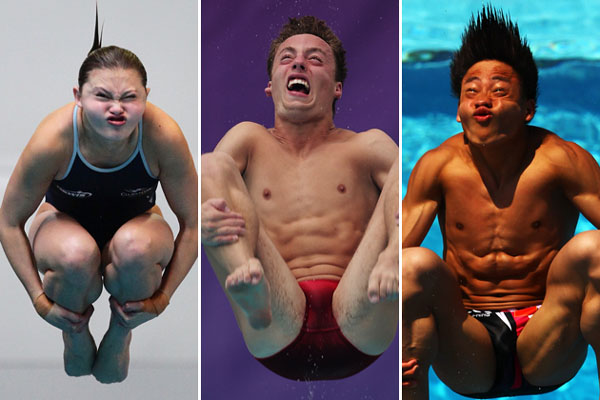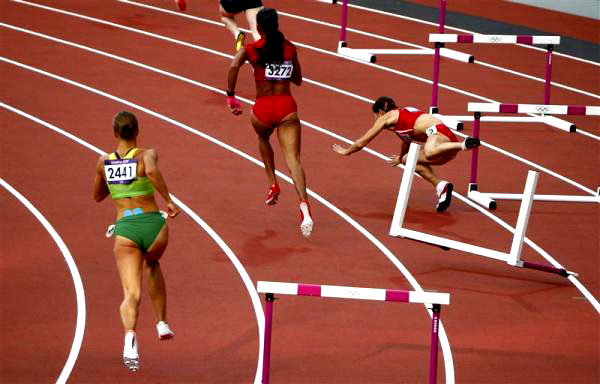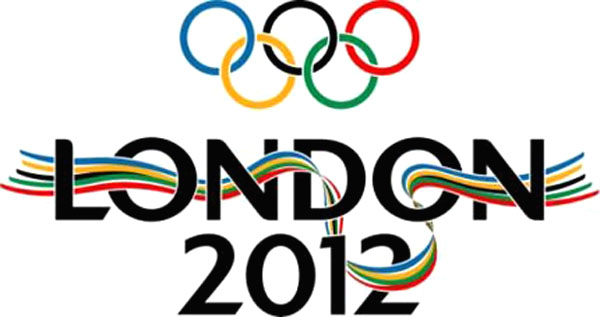Olympic You
“When people think of the psychology of excellence, images of outstanding athletic performances often come to mind,” Daniel Gould and Kristen Dieffenbach asserted at the beginning of their article in the Journal of Applied Sports Psychology (Dieffenbach and Gould, 2002). While I would argue the word “often,” I can’t argue that people would think of “outstanding athletic performances” if they were asked about excellence right now. Such is the universal wonder of the Olympics.
Seriously. I didn’t understand the ability of the Olympics to unify our collective world wide attention when I was growing up and was made to watch them in school or before the age of the internet when we were more removed from the ability to view things outside our time-zone.
I rode in a van with a Viet Nam vet and a 15 year old, inner city bred, behaviorally challenged girl and the Olympics were a common ground. I was at a gas station and a Pakistani man, praising the American Basketball team with a woman of seemingly Hispanic decent welcomed me into the conversation. I couldn’t add very much, but I added the opinion of the Nam vet.
I was talking Olympics with my wife over dinner and we turned to the topic of their appeal. My wife was the one who came up with this week’s article when she said “all these different events with excellent people in them from all over the world.” I replied “All these different people and events, with different training, but a similar mindset.
My brain was racing tandem with it as soon as the sentence leapt out of my mouth. Were there universal qualities of excellent athletes? I wondered. There had to be, I theorized. The larger question loomed, Are they applicable to the rest of us in our daily lives? Like the shot of a starting pistol, my research race began.
Gold Medal Qualities
Not only were there universal characteristics, I found, but they’d already been studied. Paramount in my research was the work by Dieffenbach and Gould that I referenced above. They build a study to “examine psychological characteristics…in Olympic champions…associated with peak performance [and] athletic success.” Their study found twelve psychological characteristics that were universally present in the make up of Gold Medal winning Olympic athletes, regardless of their event. These twelve shall be our framework, and we’ll look at some more than others.
I encourage you to take the Olympic theme one step further. Think of yourself as you read about the universal characteristics. Be your own judge. Would you earn a gold, silver or bronze medal in that characteristic? Would you not even make it to the podium? I’ve added a section on how to “train” yourself in each characteristic category, if you don’t like the medal that you judge yourself earning.
Cope with or Control Anxiety: I often think of this one when I watch any Olympic event, but especially the Uneven Bars. I try to picture the stress, tension and fear that must be coursing through the Olympiad before they hurl themselves into a kinetic frenzy and I’m truly at a loss. But, off they hurl and the world gasps in wonder. Anxiety is controllable, but many simply run from it.
Training: We brave souls who seek to train our anxiety are in luck; the world offers no shortage of opportunity. There are also multitudes of ways to learn progressive muscle relaxation and breathe control, which is something I teach to almost every anxious teen that I work with. Feel free to Google until you find one which you can practice in any situation, then do it. Consult the Helplinks page for more information.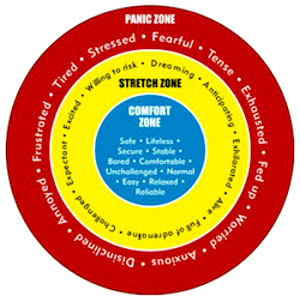
Confidence: Pick an event, you will find confidence. Many books are written about Olympiads who simply believed that they could do it and eventually that belief took them as far, or farther, than their training. Look at Oscar Pistorious, the double amputee with the confidence to compete in the semi-finals of the 400 meter. And, though he failed to qualify for the final, he didn’t come in last.
Training: Consult this chart which details our comfort zone, stretch zone and stress (called “panic” here) zone. A great way to build confidence is to separate difficult situations in your life into those categories then, attempt more in the stretch zone. Avoid the stress zone activities unless life requires them, but plan in coping strategies when you attempt them. Re-chart your life in one month. You will see that, if you’ve been training, some of the stretch zone activities will have moved into the comfort zone. Thus, we build confidence in our abilities.
Resiliency: What the heck is resiliency? Dieffenbach and Gould call it “mental toughness,” at the hospital where I work we call it “bouncing back” from a failure or difficulty. The resiliency of Olympians can be seen in how they compete in events after not placing in the last or in how they come back for the Games after not winning a medal. It is known to be found throughout the many failures of training. Resiliency, for the rest of us, is found everywhere. “Resilient people do not let adversity define them,” says Hara Estroff Marano, Psychologist and Editor-at-Large of Psychology Today. “They find resilience by moving towards a goal beyond themselves, transcending pain and grief by perceiving bad times as a temporary state of affairs.” (Estroff Marano, 2003).
Training: “It’s possible to strengthen your inner self and your belief in yourself, to define yourself as capable and competent. It’s possible to fortify your psyche. It’s possible to develop a sense of mastery,” Dr. Estroff Marano asserts. In her article, she offers the three step process of Psychologist Edith Grotberg, Ph.D., to build resiliency in the present, but also argues that “it’s definitely necessary to go back and reinterpret past events to find the strengths you have probably had within all along.” (Estroff Marano, 2003). For that, I encourage you to look at last month’s article here, Your Inner Indiana Jones, for tips on how to dig into your own past.
Sport Intelligence: Dieffenbach and Gould rightfully put this characteristic on the list. You should know your sport or your business. I’m not going to spend too much time with this one, except to say that one has two choices if they want to succeed: Become a humble expert, or become a humble novice. Humble experts will be sought after for knowledge without condescension, humble novices can do well while keeping themselves out of trouble. An expert who lords is a lonely one and a novice who plays off their ignorance and pretends is doomed to failure.
Training: Crack a book. Start with this thing called the internet. I hear they have it on computers now.
Focus: I was listening to NPR about Matt Emmons, the American Olympic Shooter who took the Bronze this year. He certainly is a portrayal of resiliency, but I was struck at how they reported that adrenaline—much the fuel of sports—is the enemy of the rifle-person because shooting is a sport about focus, not movement. To focus, Emmons had to conquer fear, failure, past and future. In life, we too must focus past our environment, our timeline and our emotions every day.
Training: Here are two conflicting activities: Meditation and Video Games. Both will build your ability to focus. Sure, there are braingames on any phone. They will train your focus. So will trying to pick off a guy in Call of Duty from across the map with a sniper rifle when someone just called in an air strike. Or meditation. To each their own.
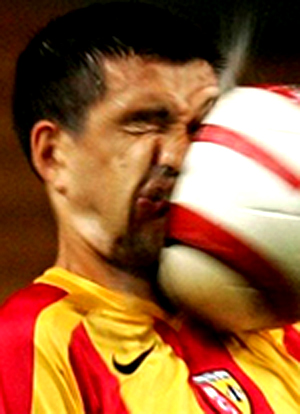 Competitiveness: Yes, the drive to succeed drives success. What I love about the Olympics is that they compete against one another as a team. Such a tension! Competitiveness used as the rising tide to lift all boats. Any writer’s group or group of workers can learn from that.
Competitiveness: Yes, the drive to succeed drives success. What I love about the Olympics is that they compete against one another as a team. Such a tension! Competitiveness used as the rising tide to lift all boats. Any writer’s group or group of workers can learn from that.
Training: The best way to train in competitiveness—especially for the non-competitive type who might identify this need—is to remember the words of the wise old sage. “It’s too big a world to be in competition with everyone. The only person who I have to be better than is myself.” Take heed to Colonel Potter of M*A*S*H, build your competition and success within your own benchmarks first.
Hard-work Ethic, Goal Setting and Achievement: I’ve lumped these together because one is the end and the other is the means. In the Olympics, we see the fight for the gold. Before that there was the fight to be in the event. Before that was the fight to be on the team. Which followed the fight to even be looked at and considered. Small goals are more realistically hit and give you room to grow. These goals are hit with daily, consistent effort.
Training: Take a big goal, time it out on a calendar. Break it down into weekly, then daily objectives. Give yourself a daily reward when you meet your daily objective. Rinse. Repeat. Celebrate big when you reach your calendar goal. I know I do.
Coachability: I love this one because I feel I’ve grown better at it, but I was quite the failure. No one can get to the Olympics without improvement and can’t improve without being open to honest appraisal and coaching. That takes humility. I wasn’t that proud or arrogant, I was the other end; too sensitive. My long-time friends could tell of short stories, roll playing characters and other creative endeavors in which I was a bulldog over a stupid idea that I should have ditched. Bless them; they didn’t give up on me. My skin has thickened as I’ve grown, much to the improvement of my creations.
Training: Remember that you are only as good as your follow through. 1. Find a mentor who you are safe with and who are unafraid to be honest. 2. Take the cotton out of your ears. 3. Put it in your mouth. 4. Try hard and often.
High Levels of Dispositional Hope, Optimism: (another two-fer) The Olympics are the fertile soil of hope. Sadly, it is fertilized by the blood of broken dreams. Dispositional hope is hope born of reality. Do you hope well? Hoping well is informed, not blind. However, the power of optimism cannot be questioned. A positive focus is truly fuel for success. There are no successful pessimists, and that’s because a pessimist is so focused on the flaws in what’s around them that they miss the fact that they’ve made it.
Training: Know your aptitude (See Coachability) and let it form your attitude, with a health dose of belief in yourself. To cultivate optimism, make a list of everything wrong with your life, world and self on one side of a sheet of paper. On the other side, argue with yourself like that bright and shiny friend who you hate. Pick one positive reframe of your pessimistic attitude and try it on for size every day. Evaluate. Repeat.
Adaptive Perfectionism: Such a good term! Olympians are the best in the world—today. An Olympian seeks to be the best, but the best that they can be. They will push through their personal barriers, unless they are better served by going around them, over them or under them. Perfection is not one direction or one goal, perfection is ever growing better.
Training: This characteristic will improve as you train yourself in the other characteristics. It is not an end, or even a milestone, it is the ever moving carrot.
The Off Season
I hope that you’ve ranked yourself and made a list to improve. Now what? There is a reason why the Olympics take place every four years. Training takes time and effort.
Some parting thoughts: Don’t expect quick results, but expect lasting ones. Track your progress somehow and email me if you can’t think of a way to track. I love that stuff. Email me or comment on your progress, I love that stuff, too. I will heap much praise upon you, as will other readers.
Though the Olympics happen once every four years, the Olympic spirit is one of triumph, determination, fearlessness and hope. Live that every day and you may never win a gold medal, but I have no doubt that you will see “gold” in your life in many ways.
__________________________________________________
Dieffenbach, Kristen and Gould, Daniel. Psychological Characteristics and Their Development in Olympic Champions. Journal of Applied Sports Psychology v14 p.172-204, 2002
Estroff Marano, Hara. (2003) The Art of Resilience. Psychology Today. Retrieved from: http://www.psychologytoday.com/articles/200305/the-art-resilience

